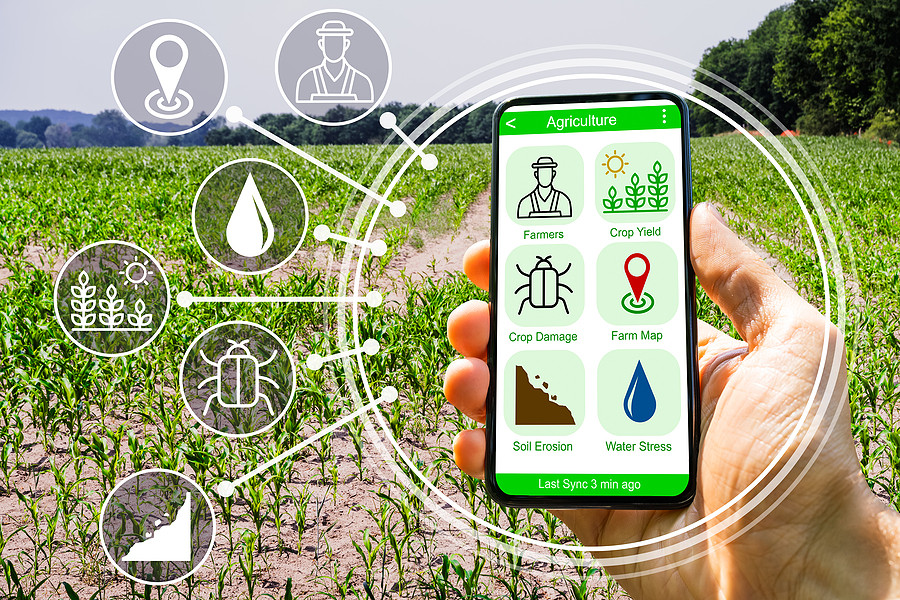Digital agriculture
It is an ICT (Information and Communication Technologies) and data ecosystems promote the development and distribution of timely, targeted information and services to make farming profitable and sustainable while supplying everyone with healthy, affordable food.
Applications
Remote sensing, soil sensors, drones are enables farmers to gather information, visualize conditions, and evaluate crop and soil health at various phases of production in a practical and economical manner.
Artificial intelligence and machine learning (AI/ML) algorithms can produce instant actionable insights to help with soil screening, insect management, and agricultural yield improvement.
With the help of blockchain technology, you can track your food and track tamper-proof, exact data about farms, inventories, and transactions.
Advantages
• minimizes the application of pesticides in crop production.
• Reduces production costs and increases productivity in agriculture.
• Encourages the effective and efficient use of water resources.
• Enhances the socioeconomic status of farmers.
• Lowers negative environmental and ecological effects.
• Improves workplace safety.
Challenges Faced by farmers
• High startup costs: This deters farmers from implementing digital farming techniques.
• Small Landholdings: Indian farms are small, with the most typical farm allotment being 1-2 acres. Additionally, leasing of agricultural land under a variety of agreements is very common in India.
• Sharing and Renting Customs: Due to both scarce financial resources and small farm plots, platforms for renting and sharing equipment and machinery, such as tractors, harvesters, etc., have replaced outright purchases.
• Illiteracy in Rural Areas: The rapid development of e-Agriculture is hampered by the absence of basic computer literacy.
How to overcome challenges
• Low-cost technology.
• Plug-and-play hardware has a greater chance in the Indian market because typical Indian farms are small.
• Platforms for renting and sharing agricultural machinery and equipment include Small agricultural plots and limited financial resources present an opportunity for online platforms that supply equipment renting and sharing services rather than outright purchases.
• Academic support: – Through various locally run programs and government initiatives, the local agricultural organization and academic institutions frequently interact with farmers. Farmers’ adoption of digital technology will rise because of the availability of training materials from various academic institutions and agricultural organizations.

